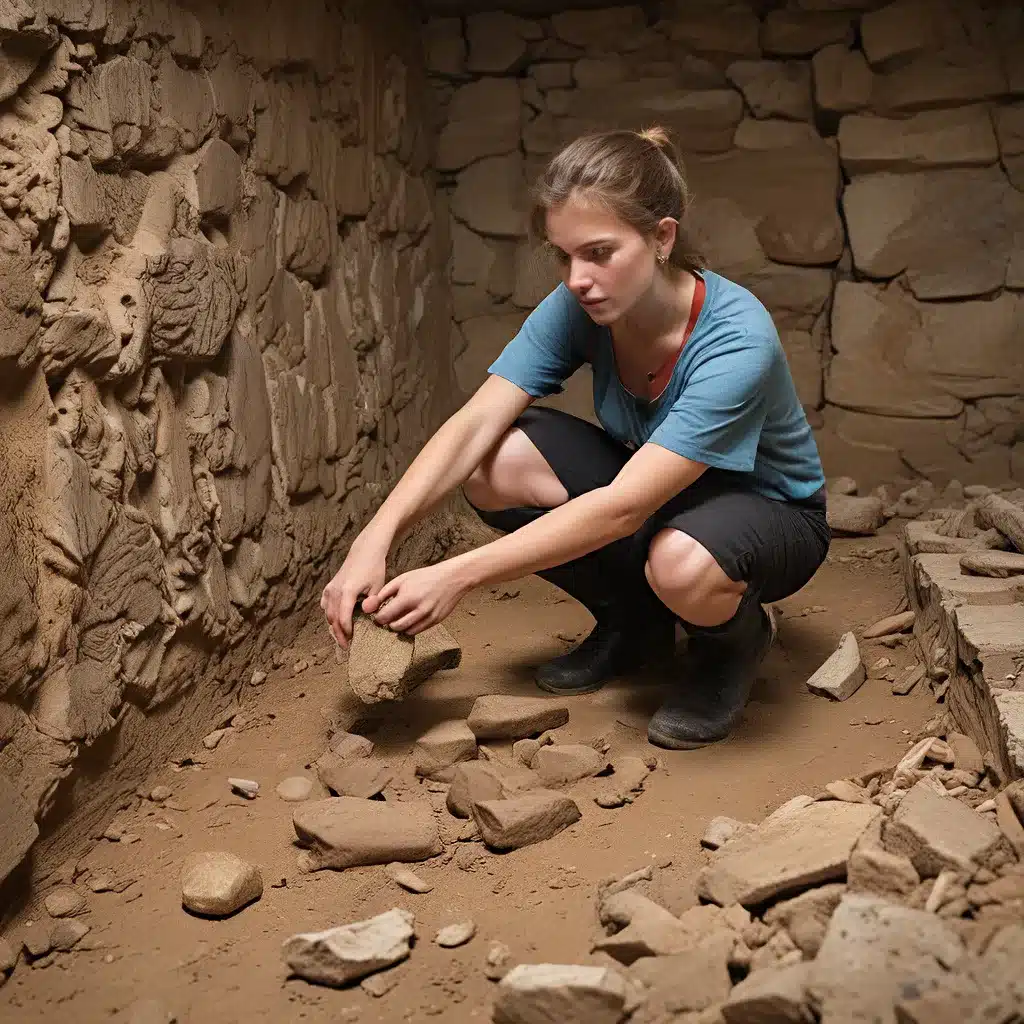
Uncovering the Secrets of Ancient Civilizations
The world of archaeology is a fascinating realm where the mysteries of the past come to light, revealing the untold stories of long-forgotten civilizations. From the awe-inspiring discoveries of towering monuments to the delicate unearthing of intricate artifacts, each finding holds the potential to rewrite our understanding of human history.
One of the most captivating aspects of archaeology is the ability to uncover the hidden narratives that have been buried for centuries, sometimes even millennia. Through meticulous excavations and advanced analytical techniques, archaeologists piece together the fragments of the past, shedding light on the lives, beliefs, and cultural achievements of ancient societies.
The Lost Kingdoms is a leading blog dedicated to exploring the wonders of archaeology and the insights it provides into the dynamic and complex nature of ancient civilizations. In this article, we will delve into some of the most remarkable archaeological discoveries and the remarkable impact they have had on our understanding of the past.
Pompei and Santorini: Preserving the Echoes of Antiquity
One of the most well-known and captivating archaeological sites in the world is the ancient city of Pompei, which was famously preserved in time by the catastrophic eruption of Mount Vesuvius in 79 AD. The ash and debris that rained down on the city froze the daily lives of its inhabitants, allowing archaeologists to uncover a wealth of information about the Roman Empire at its peak.
Similarly, the island of Santorini in Greece has revealed remarkable insights into the Minoan civilization, one of the most advanced Bronze Age cultures in the Mediterranean. The volcanic eruption that devastated the island in the 17th century BC preserved numerous structures, artifacts, and even skeletal remains, providing a unique window into the lives and customs of this ancient people.
The preservation of these sites has allowed archaeologists to reconstruct the daily routines, architectural styles, and even the dietary habits of the inhabitants. Such detailed information is invaluable in understanding the cultural, social, and economic dynamics of these ancient civilizations, and how they evolved over time.
The Enduring Legacy of the Maya
In the lush jungles of Mesoamerica, the Maya civilization has long captivated the imagination of historians and archaeologists alike. This advanced society, which flourished from the 3rd century BC to the 16th century AD, left behind a remarkable legacy of architectural wonders, sophisticated writing systems, and a rich spiritual and astronomical tradition.
Recent archaeological discoveries have shed new light on the complex social and political structures of the Maya, challenging long-held assumptions about their decline and abandonment of their great cities. Hieroglyphic inscriptions and the uncovering of intricate palace complexes have revealed the sophisticated governance and robust trade networks that sustained the Maya for centuries.
Moreover, the study of Maya agricultural practices and the careful management of natural resources has provided valuable insights into the sustainability of their civilization, offering lessons for modern societies grappling with environmental challenges.
Uncovering the Wonders of Ancient Egypt
The ancient Egyptian civilization has long been a source of fascination, with its towering pyramids, enigmatic pharaohs, and captivating mythology. Archaeologists have been continuously unearthing new discoveries that deepen our understanding of this remarkable culture, from the breathtaking tombs of the Valley of the Kings to the intricate hieroglyphic writings that reveal the intricacies of their religious beliefs and social structures.
One of the most significant recent discoveries in Egypt was the unearthing of the tomb of Tutankhamun in 1922, which provided a remarkable insight into the lavish funerary practices of the ancient Egyptians. The wealth of artifacts and meticulously preserved remains found within the tomb have shed new light on the reigns of the pharaohs and the complexities of their power structures.
Moreover, the ongoing efforts to decipher ancient Egyptian texts have led to a deeper understanding of the intellectual and cultural achievements of this civilization, from their advanced mathematics and astronomy to their sophisticated understanding of the natural world.
Unlocking the Mysteries of the Indus Valley Civilization
The Indus Valley Civilization, which thrived in the Indian subcontinent from the 3rd to the 2nd millennium BC, has long been a enigma in the world of archaeology. This advanced urban society, which predated the rise of the ancient Egyptian and Mesopotamian civilizations, left behind a wealth of architectural and material evidence that has tantalized scholars for decades.
Recent archaeological excavations and the use of cutting-edge analytical techniques have shed new light on the sophisticated urban planning, advanced sanitation systems, and extensive trade networks that characterized this remarkable civilization. The discovery of intricate seals, pottery, and other artifacts has provided valuable insights into the social, economic, and religious practices of the Indus Valley people.
Perhaps most intriguing is the ongoing effort to decipher the Indus Valley script, an undeciphered writing system that has long eluded scholars. The successful decipherment of this script would undoubtedly unlock a treasure trove of information about the intellectual and cultural achievements of this ancient society, potentially rewriting the history of the ancient world.
Embracing the Future of Archaeology
As we continue to delve into the rich tapestry of human history, the field of archaeology has become increasingly dynamic and interdisciplinary. Advances in technology, from high-resolution satellite imagery to sophisticated dating techniques, have empowered archaeologists to uncover new insights and challenge long-held assumptions about the past.
Moreover, the growing collaboration between archaeologists, historians, and scientists has led to a more holistic understanding of ancient civilizations, integrating perspectives from diverse disciplines to paint a more complete picture of the human experience.
The Lost Kingdoms remains at the forefront of this exciting journey, exploring the latest discoveries and theories that are redefining our understanding of the past. By engaging with a wide range of experts and delving into the fascinating narratives of ancient cultures, this blog aims to inspire and educate readers about the enduring legacy of archaeology and its power to reshape our collective understanding of the human story.


